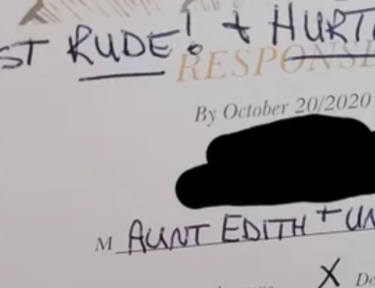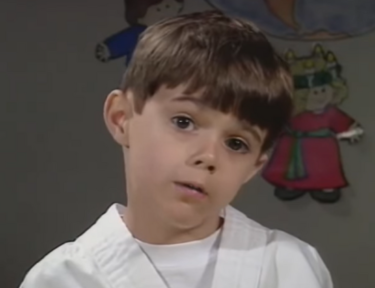Mom’s Idea for Telling Kids the ‘Truth’ About Santa Claus Is Going Viral
When our children were babies, we wondered if we would tell them about Santa Claus. Would we really lie to our children for years and make up elaborate stories about elves and reindeer to go along with the tall tale? Yes. Yes, we did. It was almost impossible not to. We heard ourselves talking about the North Pole and flying reindeer like it really was the truth. The look of amazement, wonder and excitement was worth it.
But now….now our children are getting older. The oldest is starting to notice that Santa seems to be in a lot of different malls and neighborhoods at the same time. He notices that his beard and Santa suit doesn’t always look the same. He hasn’t come out and asked if Santa is real, but we can see him getting suspicious.
We’ve heard many ways to tell children the truth about Santa. For example, you can tell them the story of Saint Nicholas. Or, you can simply explain that it’s a fun holiday tradition and not to worry because they’ll still get gifts from their parents (just like always). If you do Elf on the Shelf, you can let them start moving the Elf at night for their younger siblings.
While the ideas above probably work, we’ve come across one mom’s idea that is even better. Leslie Rush wrote a Facebook post that has now gone viral. She started the post by explaining that the way she tells the truth about Santa makes it so that “the Santa construct is not a lie that gets discovered, but an unfolding series of good deeds and Christmas spirit.”
Rush started by explaining how to know when to let your children in on the secret. She wrote, “When they are 6 or 7, whenever you see that dawning suspicion that Santa may not be a material being, that means the child is ready.”
The secret gets revealed over a one-on-one date with mom. She takes them to “coffee” (could be ice-cream, hot chocolate, whatever they like) and says, “You sure have grown an awful lot this year. Not only are you taller, but I can see that your heart has grown, too.” Then the parent should point out a couple examples of kind, thoughtful things the child has done. Then, she continues, “In fact, your heart has grown so much that I think you are ready to become a Santa Claus.”
This is where she tells the “truth.” Rush wrote, “You probably have noticed that most of the Santas you see are people dressed up like him. Some of your friends might have even told you that there is no Santa. A lot of children think that, because they aren’t ready to BE a Santa yet, but YOU ARE.”
She continues, “Tell me the best things about Santa. What does Santa get for all of his trouble?” Now it’s time to help your child with examples, like how Santa gets cookies and feels really good for being so generous.
Then she tells her child, “Well, now YOU are ready to do your first job as a Santa!” She emphasizes to anyone reading, “Make sure you maintain the proper conspiratorial tone.” Now it is time to help the child choose someone, like a neighbor or family friend. Rush explains, “The child’s mission is to secretly, deviously, find out something that the person needs, and then provide it, wrap it, deliver it–and never reveal to the target where it came from.”
Here’s the thing we like best about Rush’s way of telling the truth about Santa. She wrote, “Being a Santa isn’t about getting credit, you see. It’s unselfish giving.” And, she puts the unselfish giving into action. For example, her oldest child gave a pair of slippers to a neighbor, and later gave a bicycle to a family friend’s daughter. She wrote, “The look on her face, when she saw the bike on the patio with a big bow on it, was almost as good as the look on my son’s face.”
When it was time to tell her second child about Santa, she let her older child join her to help explain how to BE a Santa.
Parents are loving Rush’s idea, which apparently, has been making the rounds on social media for awhile. One mom wrote, “I saw this a few years ago when I experienced this with my daughter. It worked so well. Later she told me that she didn’t believe for like 2 years, but just played along for me. After our lunch to talk about it, I had her pick a kid out in school that she wanted to be a secret Santa for and we shopped for a gift for that child. Each year after that, she would choose a different kid to send an anonymous Christmas present. It made her feel like a ‘Santa’ and it helped her keep the magic alive for another kid.”
Are you going to try Rush’s idea when your children are old enough to learn the truth about Santa? If your kids already know the truth about Santa, how did they take the news?




